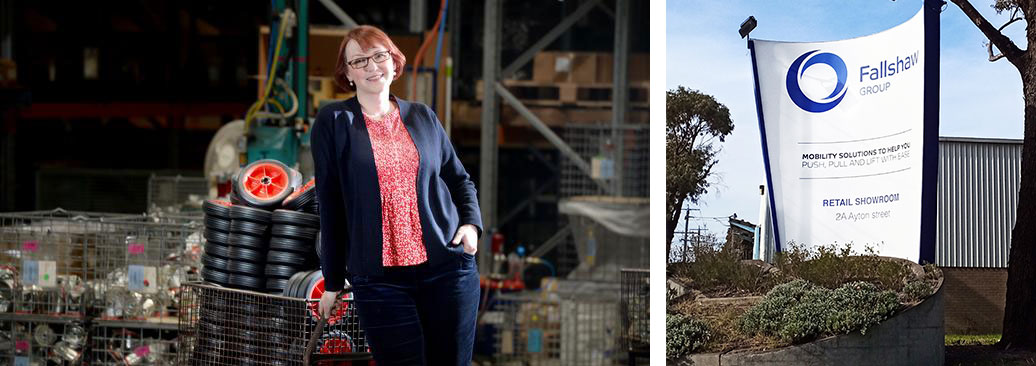"The global supply chain crisis and a customer appetite for locally produced products could provide an ongoing boost to Australia’s manufacturing sector, new research shows.
Recent research by NAB revealed that 70 per cent of small and medium enterprises (SMEs) in Australia believe that investment in more local manufacturing is the solution to supply chain issues.
NAB group executive for business and private banking, Andrew Irvine, said the bank has increased its lending to manufacturers over the past year.
“Investment in local manufacturing facilities together with strong transport infrastructure is critical to improving our future resilience,” he said.
“We have a team of expert business bankers who specialise in supporting manufacturers and lending to the industry is up 15 per cent to $7.6bn in the last year to enable the domestic production of everything from farm fencing to coffee beans,” he said.
Victorian-based Fallshaw Group, which designs and manufactures mobility equipment, is benefiting from being able to get its products to customers faster than overseas competitors.
Fallshaw managing director Jo Fallshaw said local manufacturing is important to Australia’s job growth and economy.
“A large portion of the Fallshaw group is employed in manufacturing,” she said. “Further manufacturing in Australia will assist in making the supply chain more resilient, but it will also create more jobs, which results in less welfare and crime.”
There is also a push for more local manufacturing coming from Australian consumers who are looking to buy local products.
Roy Morgan research reveals that 90 per cent of Australians aged over 14 say they are more likely to buy products made in Australia, which is an 88 per cent increase over the past four years.
Ms Fallshaw said that her customers are looking to source products that are made locally in a sustainable environment, which is also driving the push for local manufacturing.
“Manufacturing locally makes sense commercially and from an ethical point of view,” she said. “Our customers are becoming increasingly more demanding about the providence of their purchases, so manufacturing here in Australia means we can give them assurance that the item has been created in an environmentally responsible way by people who are being paid well for their work”.
Major bottlenecks in overseas freight and supply chains are further contributing to the shift towards local manufacturing. According to NAB research, 23 per cent of SME‘s were shifting to local suppliers, while 38 per cent were seeking resources from multiple suppliers for their products.
The findings showed that four out of ten SMEs are expecting significant supply chain issues to continue over the next 12 months.
Mr Irvine said the survey results clearly reflect what the bank has been hearing from businesses for some time.
“The topic of supply chains has quickly moved from a subject for the board room to something now discussed around most people’s kitchen tables,” he said.
“We are all now intimately aware of how fragile our supply chains can be in the face of a natural disaster, health crisis or international incident.”
One out of two businesses in wholesale are experiencing significant supply chain issues, while 44 per cent of manufacturing, 37 per cent of retail, and 30 per cent of construction are also experiencing challenges.
The research showed that Western Australian businesses were experiencing the most significant supply chain issues, with 35 per cent of businesses struggling, followed by Tasmania at 25 per cent and New South Wales and South Australia at 24 per cent. Some 52 per cent of SMEs advocated for there to be improvements to road, rail, sea, and air infrastructure."

